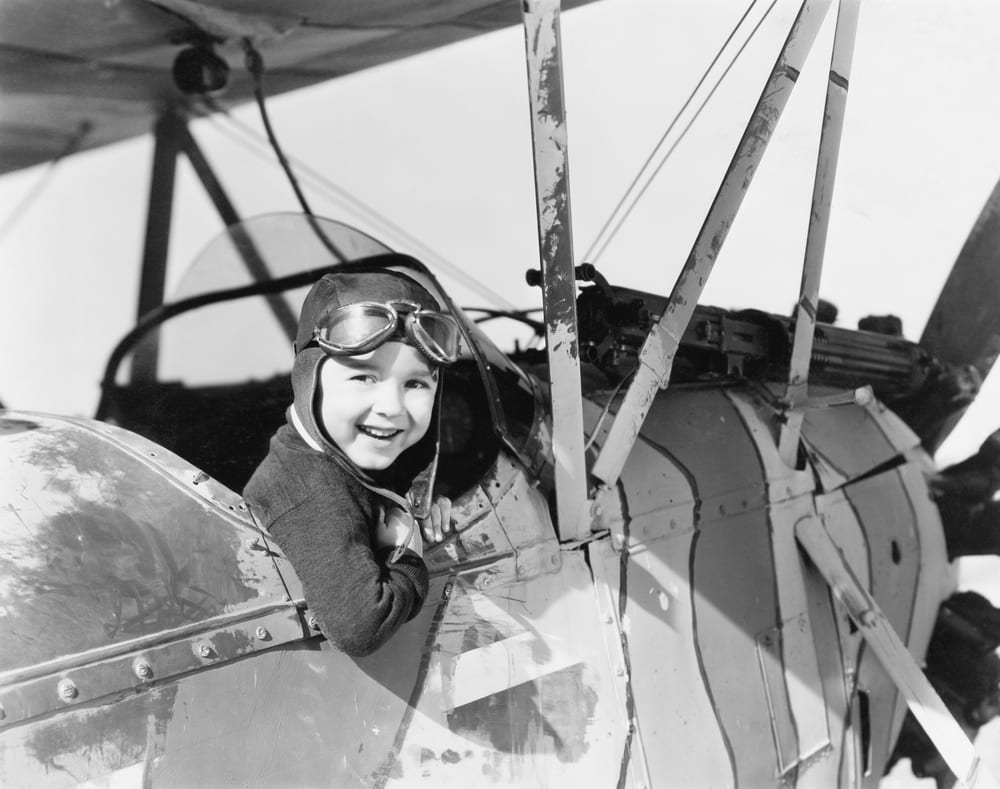Over-sentimentality, over-softness, in fact washiness and mushiness are the great dangers of this age and of this people. Unless we keep the barbarian virtues, gaining the civilized ones will be of little avail. –Theodore Roosevelt
The other day I was at my pal’s house. He has two sons. One, the elder, is my godson. The kid’s 3 years old and he’s just discovering that by saying the word “fuck” he can make me laugh in an instant – I may not be the greatest godfather around. He’s also discovering guns and fighting, farting and even women. (Read This: Are We Really Raising a Bunch of Pussies?)
If you want to see what masculinity is, devoid of the pretenses that society places on a man, look to our children. Our boys roughhouse. They fight. They’re little hellions readying themselves for war. All this kid wants to do is to fight. He loves it. He loves the physicality. He thinks it’s just the most enjoyable thing there is. Then you get some wee ladies over and he’s off fighting, exploring, playing with his trucks while they play as you’d expect girls to play, they’re much more orderly, even kind and compassionate.
Earlier this year I walked by a fire house and I saw a pal of mine working. While we chatted a young fella walked up and asked to see the truck. He wanted a little tour, eyes opened wide like grapefruits, his mind pondering the possibilities of him behind the wheel of that monster of a machine. I said to my pal, You must get a ton of kids coming by asking to see the truck and the rest of the house, he fired back quickly, yes we do, but only boys.
Being a man, standing erect and strong and dependable, begins with finding the daring action of your boyhood.
DARING ACTION
 Theodore Roosevelt is one of the more blatant and overt examples of manliness. He sought to live the manly virtues of strength and action that he saw in his father as a boy growing up in New York. He headed west to Montana to build a ranch in part because he saw it as a manly endeavour. He boxed and practiced judo even as President for much of the same reason and he went to war, acting with incredible courage, because he saw the service of one’s country as a man’s duty.
Theodore Roosevelt is one of the more blatant and overt examples of manliness. He sought to live the manly virtues of strength and action that he saw in his father as a boy growing up in New York. He headed west to Montana to build a ranch in part because he saw it as a manly endeavour. He boxed and practiced judo even as President for much of the same reason and he went to war, acting with incredible courage, because he saw the service of one’s country as a man’s duty.
He attacked life as all men should, with an energy that couldn’t be contained nor drained. The man wasn’t a man content once a project had been finished or a goal reached or a book written. He was constantly moving. It was as if life’s gift was so engrained in his view of the world that to sit and rest on laurels, even on his family’s wealth, would go against everything he believed in.
Historian Patricia O’Toole offers us this unique observation in just the kind of energy that TR had, but also how our modern culture would have dealt with him, killing the fire that created one of history’s greatest men:
“I think if he were a little boy today, he might be given Ritalin and grow up to be a salesman of some sort and we would never have heard from him again.
Look at photographs of him. Whenever he’s seated, if he has a hand on a desk or a hand on his knee, it’s always in a fist. There’s all that coiled energy. It’s not—it’s not anger, it’s just energy coiled, waiting to be let loose.”
His list of careers and accomplishments were plenty. He wasn’t a man on a singular mission like becoming the President of the United States of America, but a man on a mission to grasp greatness and it could not be attained through talent or charisma, those were not gifts he possessed, his greatness could only come as it came in Napoleon’s case, through ruthless and never-ending action and effort.
- He worked as state legislator, police commissioner, and governor in New York
- Owned and worked a ranch in the Dakotas
- Served as Assistant Secretary of the Navy
- Fought as a Rough Rider in the Spanish-American War
- Served as President for two terms, then ran for an unprecedented third term
- Became the first President to leave the country during his term in order to see the building of the Panama Canal
- Wrote 35 books
- Read tens of thousands of books — several a day, in fact, and in multiple languages
- Discovered, navigated, and then named a completely uncharted Amazonian river over 625 miles long
- Earned the Nobel Peace Prize and the Medal of Honor (posthumously)
To understand TR’s mind and his energy, you must first know his father and his childhood. He was a sickly child, wrought with illness that kept him bed-ridden, unable to pursue the adventures his soul was gnawing at him to embark upon. His siblings played and explored and he was kept quiet and safe in his room.
 Doctors prescribed rest. But his father, after years of having his son miss out on life decided that he would provide a different medicine; work. He decided to force the illness from TR’s young body or have him die trying. The mere notion that Theodore Senior’s son would grow up to be a useless human being wasn’t something he was willing to accept. So against doctors recommendations, and against what appeared to be common sense, he set young Teddy on a training program, with weights and boxing and all of the stress that you’re not supposed to place on a sickly young boy.
Doctors prescribed rest. But his father, after years of having his son miss out on life decided that he would provide a different medicine; work. He decided to force the illness from TR’s young body or have him die trying. The mere notion that Theodore Senior’s son would grow up to be a useless human being wasn’t something he was willing to accept. So against doctors recommendations, and against what appeared to be common sense, he set young Teddy on a training program, with weights and boxing and all of the stress that you’re not supposed to place on a sickly young boy.
When I was a wee one I had asthma. I’d have attacks at school. I’d puke and wheeze and be brought to my knees. As my pals played football I’d have to catch my breath before returning. Doctors prescribed asthmatic puffers and rest. My dad prescribed 10-mile a day runs.
He’d tell me about Guy Lafleur, the great Montreal Canadiens center who, as a kid, had asthma, but would run 10 miles a day knowing that he’d have to get in much better shape than the other kids if he were to succeed.
This is man-logic. It isn’t found in textbooks and you’re unlikely to have it prescribed by a doctor. Yet this is exactly what Theodore senior prescribed for his son. He saw a weak boy, one that would never experience life as great men know it, one dependent on action, not mere thought or intent.
It could be argued that his early illness gave TR an appreciation for action. Eventually Teddy trained his illness out of his body, and though he wasn’t the most talented young man he competed in boxing in college, wrote books at an early age, and acquired knowledge like the aforementioned Napoleon did as others were partying and wasting their family’s money, something that the young Bonaparte didn’t have access to.
In school we force our boys to sit for hours on end even though it goes against every fiber of their being. We want our men quiet and calm, any fisticuffs in our latter years is frowned upon as brutish and ignorant.
To man up requires action. You can’t sit on your ass and accept your fate. Fate is something we determine.
You can either be the author of your life or the victim of it.
TR chose to be the author of his life and he did so in a massive way. I know there’s a part of you who wants that kind of legacy, who wants to be all you can be, to reach your potential and to feel as though you’ve actually lived a purposeful and meaningful life.
To do that, though, you can’t do what you’ve been doing. You can’t see the odds stacked against you and take it as a lame duck. There’s power in action, and it’s that power that you have to tap into.
About The Author
 Chad Howse: Chad’s mission is to get you in the arena, ‘marred by the dust and sweat and blood’, to help you set and achieve audacious goals in the face of fear, and not only build your ideal body, but the life you were meant to live.
Chad Howse: Chad’s mission is to get you in the arena, ‘marred by the dust and sweat and blood’, to help you set and achieve audacious goals in the face of fear, and not only build your ideal body, but the life you were meant to live.
You can contact him at –
http://www.
https://www.Facebook.com/
https://www.YouTube.com/








